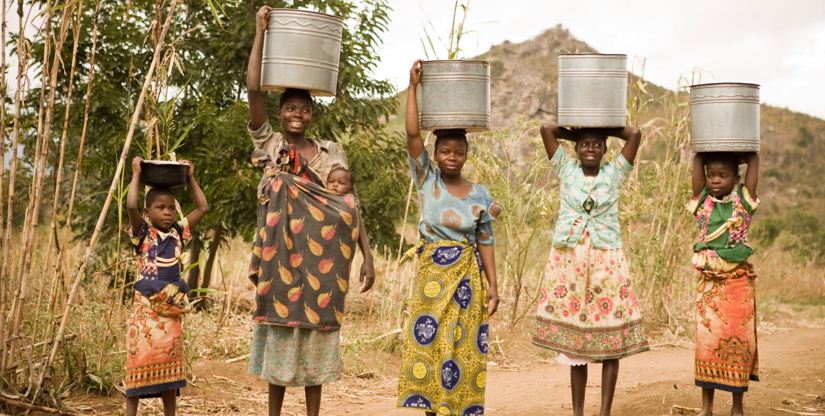
Africa – a call for clean water and sanitation
Water is a basic human need; without it, survival is not possible.
Every day, 2.1 billion people wake up with no access to clean water. In other words, millions of families around the world do not drink, cook, or shower with clean water.
Each year, 3.4 million people die from unsafe and contaminated water sources, especially in the Sub Saharan African region with the highest mortality rate average of 101 persons per 100,000 in Chad, followed by an average of 87 in Somalia.
Access to basic drinking water, safely managed drinking water, and basic handwashing facilities
On average today, only 65% of the African population have access to basic drinking water, 31% use safe managed drinking water services, and only 26% have basic handwashing facilities including soap and water.
Despite global Sustainable Development Goals and commitments made in 2015 to ensure availability and sustainable management of water and sanitation for all, a progress was only witnessed in a few African nations over the past three to five years, according to the UN’s first-ever assessment of water security in Africa. Results show Egypt as one of the top five most water-secure countries in Africa, while Ethiopia, Somalia, Niger, and Chad appear to be the least water-secure countries in Africa.
It is also noticeable that the rural population is the one water deprived the most: only 39% of the sub-Saharan population has access to basic drinking water, in comparison to 80% from the urban population.
Effects on Women & Children
More than 70% of women in Africa are employed in agriculture including water collection. That means that instead of attending school, raising a family, or simply having a decent job, African women are obliged to spend from 3 to 6 hours walking to arrive to the closest source and collect water for their household. Women who are subjected to collecting water are more likely to:
- Drop out of school
- Suffer from infections and diseases
- Die from contaminated water
- Be sexually abused and much more.
Women are not the only ones who suffer, nearly 6,000 children die of water related diseases each day. This is why, it is time to end the water crisis.
A call for help
How can we make safe water available for all? This can be done by installing sustainable water points in the most impoverished areas of the world. Our focus should be first on rural villages in Africa, where the walk to collecting clean water is on average 3.7 miles.
Previous drilling solutions have proven beneficial to the needed regions: over 9 million people have now access to clean water, and a good example is a rural primary school in southern Kenya. This school used to spend its entire government budget purchasing water for students and teachers. This budget was intended to cover teacher salaries and purchase required books and supplies, but water was determined to be a much greater need. After drilling water wells and obtaining clean water onsite, the school witnessed a knowledgeable 30% increase in attendance, and budgets were re-allocated for teachers salaries and books. This plan is a proven solution that helps increase education opportunities for girls and women, improve health and sanitation, and have more opportunities for development. Therefore, we urge you to donate now on https://wholives.org/donate/ allowing WHOlives organization to install new water points each month. You can change lives!